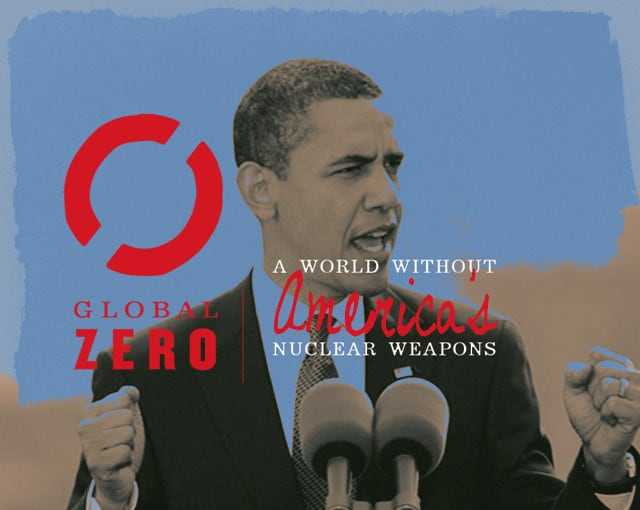Obama’s ‘Nuclear Zero’ Rhetoric is Dangerous
Gaffney, Woolsey, Lyons and Feith in the Washington Post.

Recent threats from North Korea have led the Obama administration to reverse some of its previous decisions and to build up U.S. missile defenses. Welcome as that course correction is, the North’s recent missile developments and underground nuclear test should cause President Obama to rethink his basic approach to nuclear weapons policy. He should acknowledge that he was unrealistic in making it U.S. policy to achieve “a world without nuclear weapons.”
Whatever good and idealistic intentions may have motivated the initial rhetoric about “nuclear zero,” the practical effects of embracing this slogan are harmful. The goal of minimizing the possibility of nuclear war is not served when the U.S. president, in speaking of the subject, appears disconnected from reality.
We are part of a team of 20 professionals with extensive experience in national security and defense policy who recently sent an open letter to the president. In it, we argued that the United States’ triad of land-based, submarine-launched and bomber-delivered nuclear weapons has helped ensure strategic stability and discouraged proliferation of such weapons. We also warned that raising doubts about the reliability, effectiveness and sustainability of our nuclear deterrent may embolden our enemies and encourage our friends to build their own nuclear arsenals.
When Obama administration officials speak of nuclear weapons, they generally focus on audiences gratified by talk of disarmament, especially U.S. disarmament. Hence, the administration’s (1) opposition to developing a reliable, new nuclear warhead; (2) opposition to ever testing our warheads again; (3) support for the Comprehensive Test Ban Treaty; (4) support for deep new cuts in nuclear force levels; (5) eagerness for a new treaty with Russia to make such cuts a legal requirement; (6) hints of funding cuts for U.S. nuclear infrastructure (in violation of earlier promises to increase such funding, which were pledged in 2010 to win Senate votes for the “New START” nuclear arms reduction treaty with Russia); and (7) endorsement of “nuclear zero.” The president calls it “leadership” when he adopts such policies. He says other countries will more energetically oppose nuclear proliferation in Iran, North Korea and elsewhere if we demonstrate such leadership by constraining our own nuclear capabilities.But these policies have not yielded the hoped-for diplomatic benefits regarding North Korea and Iran. Their nuclear weapons programs progress, as do their programs to develop long-range missiles capable of carrying nuclear warheads.
If, as a result of the increasing capabilities in North Korea and Iran and doubts about the United States, countries such as South Korea, Japan, Taiwan and Australia (or, in other regions, Turkey, Egypt and Saudi Arabia) begin to hedge their bets and develop their own nuclear weapons, the world will become a much more dangerous place. Playing to certain audiences that crave disarmament talk is not a cost-free exercise. The price is discomfiting serious, responsible officials in nations long content to forswear nuclear weapons largely because they could rely on the United States to provide the necessary security. Such reliance has served their interests and ours. It has contained the danger of nuclear war and preserved the world’s nonproliferation regime from collapse.
Obama’s determination to make major new cuts in the U.S. nuclear arsenal should be considered in this light. By some accounts, he has in mind reductions of about a third. It would be wiser if the president fulfilled the commitments he made during the debate over ratification of his New START treaty with Russia: modernize all three legs of the triad; ensure the safety and deterrent effectiveness of the weapons in each leg; and restore the critical industrial base supporting these forces.
- Obama’s ‘Nuclear Zero’ Rhetoric is Dangerous - April 1, 2013
- A Foreign Policy Failure to Acknowledge the Obvious - October 19, 2012
- How the Russian ‘Reset’ Explains Obama’s Foreign Policy - October 18, 2012
